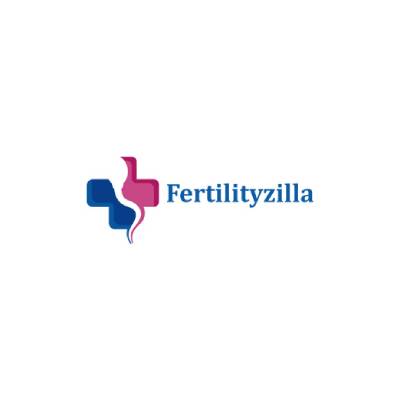Female Infertility
Female Infertility
Dr. Smriti
Jul 01, 2021
What is Female Infertility?
According to The Hormone Foundation, female infertility is the inability of a female, not trying birth controlling methods, to get pregnant after one year of trying.
This is a critical health condition and affects a healthy relationship as well. Couples, who fail to bring in this world their progeny, often undergo deep stress and anxiety. Moreover, it is extremely distressing for a woman not to be able to reproduce.
Here’s what you need to know about female infertility; to be aware and create awareness to serve society on humanitarian grounds.
As discussed above, when a female cannot reproduce an offspring or get pregnant after trying unprotected sexual intercourse for one complete year is called female infertility. Also if a woman continues to have several miscarriages, it is considered to be infertility as well.
Female Infertility Symptoms
Some of the most common and frequently experienced symptoms include:
- Painful intercourse
- Long, heavy, sometimes irregular, or no menstrual cycles
- Hormonal imbalances; frequent mood swings
- Pale or dark blood during periods
- Pelvic pain
- Irregular weight gain
Causes
On experiencing the above-mentioned female infertility symptoms, one must connect with a healthcare practitioner. It helps the survivor know the underlying causes that can contribute to female fertility issues.
These may include:
- Ovulation disorders—This health condition affects the release of eggs from the ovaries. Common factors can be hormonal issues such as polycystic ovary syndrome or cysts, hyperprolactinemia, and thyroid problems (both hyperthyroidism or hypothyroidism).
- Women can have infertility problems due to uterine or cervical abnormalities, such as polyps or fibroids in the uterus.
- Pelvic inflammatory diseases leading to damage or blockage in the fallopian tube.
- Endometriosis—This is a health condition, where tissues grow outside the uterus instead of occurring inside of the uterus.
- Early menopause, where ovaries stop functioning and women do not get their periods before the age of 40.
- Scar tissues left after pelvic infection, appendicitis, or abdominal or pelvic surgery.
- Medical health issues such as uncontrolled diabetes, celiac disease, and autoimmune diseases such as lupus.
- Aging can also cause infertility as it leads to a decline in the quantity and quality of the eggs. Hence, females find it difficult to conceive after attaining a certain age or when they are close to menopause.
- Obesity or irregularly increasing body weight
Female Infertility Diagnosis
Female infertility diagnosis begins with an evaluation of ovulation. One needs to check if ovulation is occurring at predictable intervals.
Generally, when an egg is released, it causes certain changes in the body’s sex hormones.
Few methods help check ovulation, such as
- Early-morning core body temperature— On ovulation, one will experience a slightly higher temperature than usual. If it is not there, one may consult with a doctor to see what is happening.
- Ovulation predictor test— It is an over-the-counter urine test. It helps know if the egg is released. A positive test means the individual has ovulated recently or is about to ovulate.
- Vaginal mucus— One can spot changes in the appearance and consistency of the vaginal mucus. Clear, stretchy mucus is indicative of a healthy ovulation and signals hormone shifts.
In case, all of the above-mentioned tests fail to confirm ovulation, one can connect with a healthcare practitioner and go for a female infertility test or blood tests that help confirm normal ovulation and check if the ovaries are functioning well enough to release eggs. Also, these blood tests help measure the function of your thyroid, pituitary, and adrenal glands as well.
Female Infertility Treatment
Now the question arises about how to cure female infertility in female? Women can go for treatment options as per the results of the diagnosis of their ovulation. For the most part, different causes of infertility have a specific treatment. Hence, the treatment varies from person to person.
For instance, surgery can be female infertility treatment for removing a fibroid tumor.
Here, several treatments are enlisted that help cure specific causes of female infertility:
Fertility Medicines
Most fertility drugs are given to balance hormones and stimulate ovulation. These medications may have certain side effects, hence, recommended to use only on a doctor’s prescription or under the guidance of a fertility specialist.
Some of the commonly prescribed medications are Clomiphene (Clomid), Luteinizing hormone (LH) and follicle-stimulating hormone (FSH) injections, and a GnRH analog.
Fertility Surgeries
After taking medicines, eggs can travel naturally from the ovary into the uterus. However, the fallopian tubes should be healthy to stimulate the journey and initiate pregnancy. If it doesn’t function well, surgical treatment is given to help a female’s body harvest the mature eggs effectively.
Prescribed Fertility Treatments that help start a pregnancy include:
- Intrauterine insemination (IUI)— Under this surgical process, sperms are directly inserted into the uterus with a syringe. This procedure causes minimal discomfort to the female body.
- In vitro fertilization (IVF)— This fertility treatment involves the surgical collection of eggs and sperms and their fertilization in the laboratory. Once the embryos are produced, one or more embryos are then inserted into the uterus. However, this treatment hardly guarantees pregnancy as the implantation of the embryo depends on the female body’s hormonal balance and other fertility-favoring conditions.
On the other hand, if more than one embryo implants itself in the uterus, it may result in twins or higher-order multiple pregnancies.
- Egg Donation— For aging females, especially over 42, who have not succeeded with other therapies, or if have a premature ovarian failure (early menopause, the treatment options get limited. In such a case, egg donation can help them get pregnant. It involves the use of eggs donated by another woman who is typically in her 20s or early 30s. However, the receiver’s body should be healthy enough to allow the conception. Once the donor provides the egg, the IVF procedure is carried out for the same.
Healthy Tips for Increasing Fertility Naturally
Women can adapt to some healthy habits and take some measures to naturally increase their ability to get pregnant.
Some of the tried and tested ways are mentioned below:
- Taking antioxidant-rich foods, multivitamins, high protein-source foods, and high-fat dairy products can help improve the fertility rate.
- Following an exercise regime, primarily focused on the pelvic area can help relax the muscle and stimulate conception. One can connect with an instructor to do so. In any case, it is important to know if exercise can readily help have pregnancy.
- Avoiding stress and anxiety levels has a great impact on hormonal balance. Managing stress levels can help increase your chances of conception.
- Weight management is one of the most important health measures to increase the rate of becoming pregnant.
- Limiting caffeine, avoiding smoking and excessive alcohol, taking proper sleep (at least 7 to 8 hours), and avoiding exposure to toxins can do a great help.
Bottom Line
Many women often feel diffident while struggling through such complications and remain puzzled at what if they are infertile. But, we should know that it is a health condition like other complications and it can be treated with proper medications, surgeries, and measures.
If you have encountered female infertility symptoms or tried but failed to conceive, it’s high time to get in touch with a certified gynecologist and see if need assistance across female infertility tests and treatments. He or she can help you identify ways to improve your fertility and boost your chances of getting pregnant.
FAQS
Q1. What causes female infertility?
Answer- Female infertility is generally caused by hormonal imbalances leading to poor, irregular, or no ovulation, fallopian tubes or uterus blockage, and cysts or ovarian syndrome. Sometimes aging can be the cause of female infertility as the female body loses naturally tendency to conceive with the growing age.
Q2. How can a woman tell if she is infertile?
Answer – There are certain signs and symptoms that a woman can check for her body. These include painful sexual intercourse, irregular or no periods, dale or pale color of the blood during periods, fatigue, bowel or pelvic pain, and irregular weight gain.
Q3. Can female infertility be treated?
Answer- Yes, female infertility can be treated with certain medications and surgical procedures. Generally, medicines help increase follicle-stimulating hormone (FSH) and luteinizing hormone (LH). Along with this, one can go for surgeries such as IUI, IVF, and other female infertility treatments under assisted reproductive technology.
Q4. How common is female infertility?
Answer- As per the research and information given by The Hormone Foundation, there are more than 3 million couples in the United States who are affected by infertility. Of all, 40 percent are female infertility cases. Also, according to the Centers for Disease Control and Prevention, about 10 percent in the United States of reproductive age find it difficult to conceive and get pregnant.
References
https://alteredstatesinstructions.com
https://www.womenshealth.gov
https://my.clevelandclinic.org


[…] treatment for female infertility involves medication, surgery, and reproductive assistance like ART. There are times wherein several […]
[…] age, the chances of a woman getting pregnant decrease. These days age is the most common factor in female infertility the reason is most couples wait till their 30’s or 40’s to have […]
[…] surgery can be used to treat infertility in women. The surgeon might refer for laparoscopic surgery if he suspects the below mentioned […]